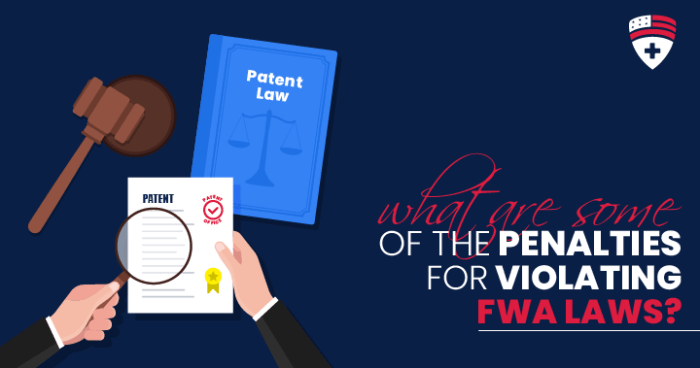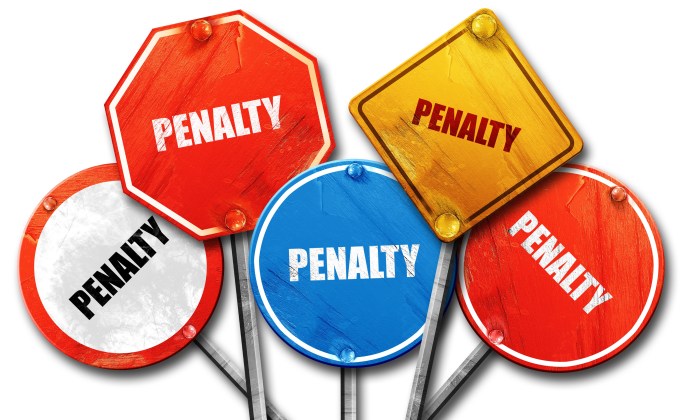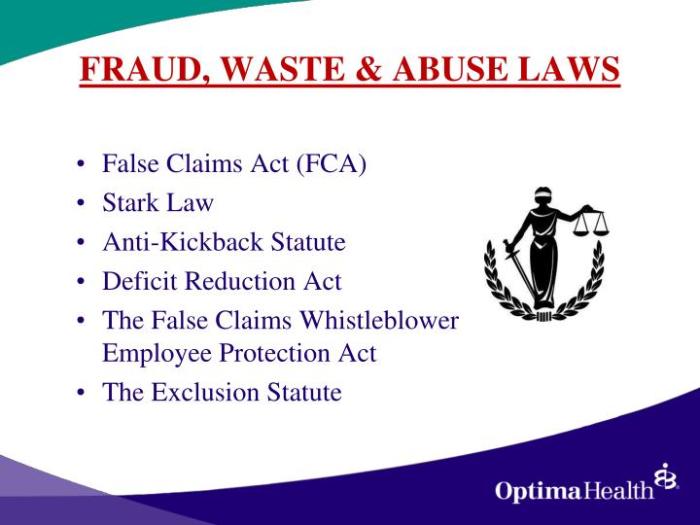Penalties for violating fwa laws – The Fair Work Act (FWA) stands as a cornerstone of Australia’s labor law, safeguarding the rights and entitlements of employees. Violations of these laws can lead to significant consequences, underscoring the paramount importance of compliance for businesses and individuals alike.
This comprehensive guide delves into the penalties associated with FWA violations, providing a detailed examination of the legal framework, its implications, and strategies for avoidance.
Introduction
The Fair Work Act (FWA) is a comprehensive piece of legislation that sets out the minimum standards for workplace relations in Australia. It aims to promote fairness, equity, and productivity in the workplace by providing a framework for regulating wages, working conditions, and dispute resolution.
Compliance with FWA laws is essential for businesses as it ensures that they are operating within the legal framework and fulfilling their obligations to their employees. Failure to comply can result in significant penalties and reputational damage.
Penalties for Violating FWA Laws

There are a range of penalties that can be imposed for violating FWA laws, depending on the severity of the offense. These penalties include:
- Civil penalties, such as fines or injunctions
- Criminal penalties, such as imprisonment
- Administrative penalties, such as the suspension or cancellation of a business license
The severity of the penalty will depend on factors such as the nature of the violation, the size and financial resources of the business, and any previous history of non-compliance.
Examples of Specific Violations and Corresponding Penalties, Penalties for violating fwa laws
- Failing to pay employees the minimum wage can result in a civil penalty of up to $63,000 per contravention.
- Unfairly dismissing an employee can result in a civil penalty of up to $72,000 per contravention.
- Knowingly making a false or misleading statement in relation to a workplace matter can result in a criminal penalty of up to 12 months imprisonment.
Impact of FWA Violations

Violating FWA laws can have significant consequences for businesses, including:
- Financial penalties
- Reputational damage
- Reduced productivity
- Increased staff turnover
In addition, FWA violations can also have a negative impact on employees, such as:
- Loss of income
- Emotional distress
- Difficulty finding new employment
Avoiding FWA Violations

There are a number of steps that businesses can take to avoid violating FWA laws, including:
- Familiarizing themselves with the FWA and its requirements
- Seeking professional advice from a lawyer or human resources consultant
- Implementing robust workplace policies and procedures
- Providing training to employees on their rights and responsibilities
- Regularly reviewing and updating workplace practices
Enforcement of FWA Laws
The Fair Work Ombudsman (FWO) is responsible for enforcing FWA laws. The FWO has a range of powers to investigate and prosecute FWA violations, including:
- Conducting inspections of workplaces
- Issuing compliance notices
- Taking legal action against businesses that violate FWA laws
It is important for businesses to cooperate with the FWO during any investigation. Failure to cooperate can result in additional penalties.
General Inquiries: Penalties For Violating Fwa Laws
What are the most common types of FWA violations?
Common violations include underpayment of wages, failure to provide payslips, and breaches of minimum employment standards.
Who is responsible for enforcing FWA laws?
The Fair Work Ombudsman is the primary agency responsible for enforcing FWA laws.
What are the potential penalties for violating FWA laws?
Penalties can range from fines and back-payments to imprisonment in severe cases.